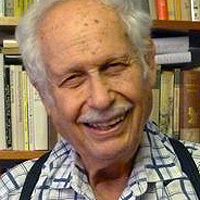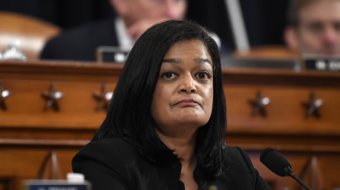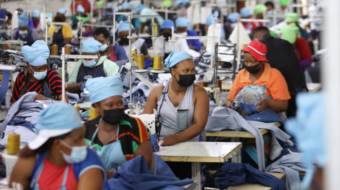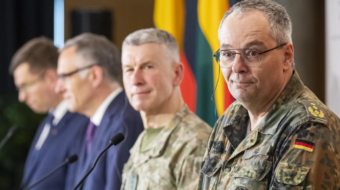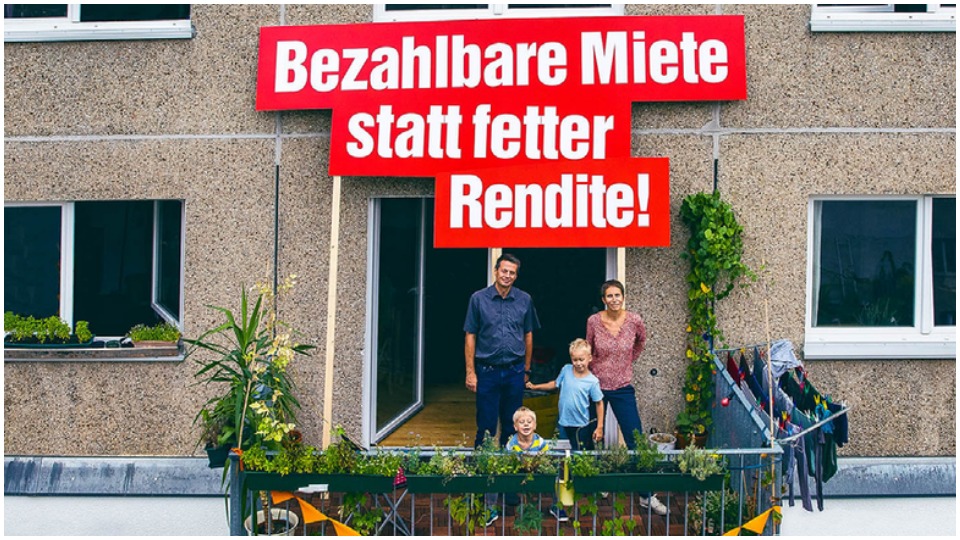
BERLIN – In 1990, on October 3rd, Germany could rejoice; unity at last, a single flag, a single anthem (“Deutschland über alles”), a single currency, a single foreign policy; in other words, freedom and democracy triumphant! And with it what Chancellor Ludwig Erhard had called a “social market economy, the foundation of our liberal, open and democratic society, with functioning competition, pricing freedom and a wide range of affordable goods, while absorbing its disadvantages, such as monopolization, price fixing, and protecting citizens against illness and unemployment … while at the same time fostering prosperity.”
And that is just what so many East German “Ossies” expected, demonstrated, and voted for in the polling booths. Are they still rejoicing thirty-two years later?
It’s a question also valid for the so-called sister countries, who also metamorphosed in almost amazing marching order: in September 1989 a non-communist government was elected in Poland, in October the Communist regime in Hungary was shut down, in November (when the Berlin Wall was opened) Václav Havel took over in Prague. On Christmas Day, in the bloodiest take-over, Ceaușescu and his wife were killed by a Romanian firing squad.
In February 1990 the Communist Party gave up its claim to power in Bulgaria. The decisive German vote was on March 18th. In October came the official German “I do” – just what those giant corporations, expelled from East Germany after the war, had never ceased conniving and pressuring for. They had won at last, the wedding ring was squeezed onto the Eastern finger.
The first years were great for Ossies’ travel possibilities and lovely commodity assortment, but otherwise – for millions – pretty ghastly! The over-hasty introduction of the “West-mark” into East Germany and the seizure, shuttering or penny-ante sellout of its entire, substantial industrial base caused havoc, misery, and bitterness.
Adding insult to injury, second or third string “Wessies” moved in and seized control and jobs – in the judiciary, police, education, journalism, and economy. By and large, they still run them.
Before unification – or annexation – even the lop-sided East-West rivalry impelled both sides to keep some standards high. While the totally disadvantaged GDR had been unable to match assortments in retail shops, it had such good conditions in its workshops that West German bosses often felt it wiser to go easier with cuts or repressive policies. With western unions always able to hint: “You don’t want workers to look to the East, do you?” it was like having an invisible but helpful GDR ally sitting at the bargaining table. (Of course, it also kept GDR unions and lawmakers on their toes in terms of improvements.) But in October 1990 this rivalry – with that invisible ally – was buried.
In the following decades, life settled down a bit but remained heavily west-dominated, with eastern wages lower, hours longer, and the job atmosphere worse. Many East Germans still feel they are looked upon and treated as second-class citizens. While subsidiaries of West German industries improved the job situation in larger cities, many towns, based around one or two now-defunct factories, are top-heavy with the elderly.
Especially young women, better able to care for themselves, left to find jobs in the west. The young men who remained, with lessened hopes of decent jobs, lacking any new orientation or clear motivation but sharing eastern bitterness, were all too easy prey for right-wing and openly fascist parties, songs, gangs, or underground conspiracies.
Needed the votes
But the Social Democrats still needed the votes of the workers and in the East, both the LINKE party (renamed after joining with western leftists) and newly rebirthing unions in the truncated industry were beginning to threaten the establishment status quo. A cantankerous baby was the last thing the politicians wanted; for some years the pressure against unions and cuts in social benefits remained relatively moderate in the West and, to a degree, in the East.
Then came the financial crisis in 2007, pressures from U.S. dollar domination increased, and with it globalization, digitalization, then economic growth in China, the COVID crisis, and the inherent stress on every enterprise in “free market” capitalism to either keep growing or go under, with wealthier rivals waiting for their chances. That caused a growing pressure to keep profit levels safe and high, with the resulting pressures. The old Bertolt Brecht two-liner gained renewed validity:
A rich man and a poor man, there they stood, And judged each other as best they could.
The poor man said, his voice at low pitch, If I were not poor you’d not be rich.“ (transl. VG)
The problems grew, even when largely ignored by those not facing them or causing them. An estimated 2.5 million children live below the German poverty line, and even more elderly people, while the retirement age edges annually toward 67.
Nearly a thousand “pantry” centers offer free food to people in need, nearly a hundred in Berlin alone, with the churches adding another fifty. But increasingly, they cannot meet the needs of more and more “customers.” This was ironic for eastern “Ossies”; imported foods and delicacies had been hard to get in the GDR but staple foods were amply available at extremely low prices, unchanged from 1958; even the word for “food pantry” (“Tafel”) was unknown in the East.
While many problems increased, some statistics tumbled downward. A new poll found only 59% of the West Germans were still satisfied with the way democracy was working – and only 39% of East Germans. As for social justice, with a huge income gap, only 33% in the West are now satisfied – and a paltry 23% in the East. Economists offered gloomy predictions of a worsening economic crisis – and there was a hollow note in the self-congratulatory speeches so common on the Day of German Unity.
As for that former sisterhood, all had hoped like the East Germans that the European Union, with a wealthy united Germany, and NATO, with an even wealthier USA, would soon make them healthy, wealthy, and wise. The result was spotty at best.
Poland, ruled by far-rightists, escaped domestic disaster by encouraging over 2 million citizens to seek jobs in Germany, France, Ireland, and Britain (where their great number helped cause Brexit). In the Czech Republic, which did best, its economy was overrun by foreign owners, like once-proud Skoda, founded in 1895, and now subject to the up or down whims of its distant owner, Volkswagen-Finance Luxemburg.
Romania and Bulgaria suffer one political shake-up after the other, with constant economic crises and corruption. Nor does Orbán in Hungary offer an enviable model. People may have won many rights since 1990 but, like the East Germans, lost all security in their daily lives.
And how long will the rights last? The question is popping up even in western Europe, with strong rightist parties now in France, Sweden, Denmark, Belgium, Netherlands, Austria, Spain, and Italy, while in the UK a fighting Labour Party was almost completely re-tamed to lap-dog docility by the media-mastered ouster of Jeremy Corbyn.
In Germany, with so little optimism lying around, opposition was beginning to be worrisome for top-level movers and shakers; some proactive seeding and fertilizing were needed. A traditional prescription against opposition from below is nationalism, hyped-up jingo-patriotism ably furthered by skilled media-aces, flag-makers, and a wide range of politicians and their lobbyist pals, just what the doctor ordered for the ladies and gents heading Lockheed, Raytheon, Boeing on one side of the ocean, selling F35s, Javelins, and drones, and those over here like Rheinmetall (Leopard tanks), ThyssenKrupp (submarines), Heckler & Koch (assault rifles and machine guns) – plus other patriotic do-gooders wherever they are!
This year’s Day of German Unity ceremony was in ancient Erfurt, in East German Thuringia, because its minister-president Bodo Ramelow, now holds the rotating chair of the German Upper House, the Bundesrat. This first and only LINKE politician to hold that post, once denounced as a Bolshevik menace (because of his party), Ramelow is now accepted by all the proper people.
Leads the “moderate” wing
Once a West German trade union staffer who joined the move to the East in 1990, he is a leader of the moderate or “reformer” wing of the LINKE. He made headlines a year ago by urging a compromise on opposing NATO and military deployment outside Germany – so as to gain acceptance by the Greens and Social Democrats on a federal level, as he has achieved on a state level in Thuringia. His more recent media laurels were for angrily opposing the far more militant Sahra Wagenknecht and any LINKE who rejects such compromises.
Ramelow’s highly-publicized holiday speech decried the all-too-slowly diminishing disadvantages for East Germans – his obvious duty as one of their rare representatives. He repeated the standard, dutiful calls to oppose anti-Semitism and racism and praised the goal of a close-bound folk which, despite historically rooted divergences, was moving forward, united in friendship and in solidarity and zeal in opposing authoritarianism, above all what he called criminal Putin-imperialism.
Well-delivered – Ramelow is a good speaker – much of it could have been said by almost anyone in any party and state capital. No mention of strike actions, now growing in number, not a spoonful of militancy in the face of emerging conflicts, or fight-back against 200 billionaires who rule the economic roost and much of the political roost, increasingly menacing all our lives and all our lands.
Not any response to the threat of nuclear conflict or the need to fight against it. Yes, Putin’s inhumanity was evil, but he said not a word about the bombing of Yemen, about Germany replacing “Putin-gas” with that of such gentle partners as Saudi Arabia or the Emirates. No word about Julian Assange. But then, such topics might have been out of place in Erfurt on the Day of German Unity.
But this time, a Monday – often a conflicted weekday because of the “We are the people” Monday marches in 1989 – there were defiant protest demonstrations in almost every city in Thuringia, and cities and towns up and down East Germany – and some in West German cities as well. They were not big marches, mostly counting between 1000 and 4000, but were bigger than on the previous Monday and in far more towns and cities. They rejected a planned extra 100 billion euro outlay for armaments, opposed the export of weapons, and some were against sanctions on Russian oil with their chilly or icy result in homes and factories, schools and museums, when the poorest would be hit worst and the richest would continue to rake in piles. The most common slogan was “Heating, bread, and peace!”
There were problems; some marching groups were remnants of past anti-masking, Covid conspiracy demonstrations. Far-right elements again tried to muscle in. And indeed, rightist AfD support for Putin while also demanding an even greater beefing-up of German armaments has caused confusion. Most protesting groups drew sharp lines, including physical ones: “No far-rightists!” But the media, eagerly denouncing the whole action, had found its main line of attack: “Pro-Putin joins with the far right against Ukraine.” Can a left-led campaign for peace grow strong enough to overcome such problems?
The government coalition, faced with an urgent need to prevent the worst misery and head off more and bigger protests with growing rebelliousness, was also torn by quarrels, with Greens “postponing” or forgetting nearly all ecological principles and the Free Democrats, unable to overtly prevent increased taxes on the very wealthy, weakened enough to OK deficit measures whose burden would be shouldered onto later governments – and working people.
But the coalition was displaying conspicuous incompetence and widening cracks. Holding it together was the Ukraine policy. The weakest Social Democrat, Health Minister Karl Lauterbach, tied up tightly in Corona confusion, could be bold on at least one point: “What good can it do us to kowtow to Putin? We are at war with Putin, we are not his psychotherapist. It’s necessary to keep fighting consistently and win victory by liberating Ukraine.”
Not a whisper about negotiating or peace – only about victory, “Sieg” – no matter what it costs ordinary people, most of all the Ukrainians. All are enthusiastically united under the pronged star flag of NATO. Or almost all. Anyone with doubts, or “whoever betrays Ukraine…” – this in the words of Christian Democrat opposition leader Friedrich Metz – “is also betraying our freedom and our democracy!” And had better watch their step! A curious, very worrisome warning!
Some are daring to take such steps – in the streets of many towns and cities. But while this includes many members of the LINKE, not too many leaders are among them. The war fever now so quickly bubbling up in Germany has engulfed them too, like Bodo Ramelow, or LINKE Bundestag delegate Caren Lay who just spited China by visiting Taiwan with delegates from other parties, in the provocative footsteps of Nancy Pelosi, and shortly after German Eurofighter planes paid a visit to Japan, a precedent and omen of expansion.
It’s so much easier to run with the crowd. But running or walking, in such footsteps, hand in hand with happy warriors like Baerbock or Lauterbach, will not win the votes either of the “Fight on to victory – ruin Russia!” crowd, who will choose the other colors anyway, nor of those who defy flag-wavers and censorship and demand a cease-fire and negotiations by all sides and who once saw the LINKE as an uncompromising “Party of Peace.”
LINKE can and must still be saved; there are so many good fighters in its ranks. This coming winter may be facing bitterly icy winds inside and out, and possibly winds of change – in the LINKE, in Germany, and the world. Almost any direction is possible, militantly progressive or tragically acquiescent. Brave decisions are certainly necessary.


